Before the tornado, Penny Wade Smith didn’t much care for the low-income neighborhood behind her business.
Her husband, Rob Smith, shared her lack of concern.
As the Christian couple saw it, the residents had become a nuisance — responsible for dumping trash and beer bottles in the yard of Wade Farm Financial Services in Mayfield, Kentucky.
“A couple of years ago, I started thinking about moving somewhere more desirable in town,” said Penny, 56, whose late father, Kenny Wade, started the tax and bookkeeping service for farmers in 1985. “I just didn’t want to go through all that trouble to move all my IT (information technology) and everything.”
Instead, Penny — whose family attends the Reidland Church of Christ in Paducah — expanded her building and put up a wooden fence “to keep out the undesirable element of our neighborhood,” as she described it.
Your tax-deductible gift helps our journalists report the truth and hold Christian leaders and organizations accountable. Give a gift of $30 or more to The Roys Report this month, and you will receive a copy of “Hurt and Healed by the Church” by Ryan George. To donate, click here.
Then came the night of Dec. 10.
An EF4 twister with winds estimated at 190 mph ravaged this western Kentucky community, demolishing hundreds of homes, businesses and churches.
In Graves County, where Mayfield is the county seat, 22 people died, including nine killed while working at a wrecked candle factory.
The storm also knocked down the fence separating Penny and Rob from that “undesirable element.”
‘Like an atomic bomb had gone off’
Driving to Penny’s office the Saturday morning after the tornado, the couple didn’t know what they’d find.
Would Wade Farm Financial Services still be standing?
Would it be a pile of rubble?
Penny moved to Mayfield at age 7 and grew up in the close-knit community of 10,000.
The mother of four adult children still considers Mayfield home, even though she and Rob, her husband of 33 years, now live about 30 minutes away. The couple’s two-story farmhouse in South Fulton, Tennessee, just across the Kentucky state line, originally belonged to Penny’s grandparents.
The Mayfield twister was one of dozens of tornadoes that ripped across the South and Midwest Dec. 10-11, killing more than 90 people. Kentucky, where 77 died, was the hardest hit.
Penny and Rob watched the storm’s path on WPSD-TV, the NBC affiliate in Paducah.
At one point, their area seemed to be in danger. But then the rough weather turned ever so slightly away from them.
As the tornado approached her hometown that Friday night, Penny called her youngest son, Noah Smith, 25, who lives in Mayfield. She told him to grab a mattress and take cover in the bathtub.
“He told me later he did not get the mattress,” Penny said. “But he was spared, too. There was not a scratch on that house.”
Noah tried to go and check on Penny’s office. But he couldn’t make it to the street. There was too much debris.
So Penny and Rob hunkered down and waited for morning.
As the couple got close to Penny’s business, they glimpsed a heap of wood and metal where Lucky Liquor had stood, just across the street from Wade Farm Financial Services.
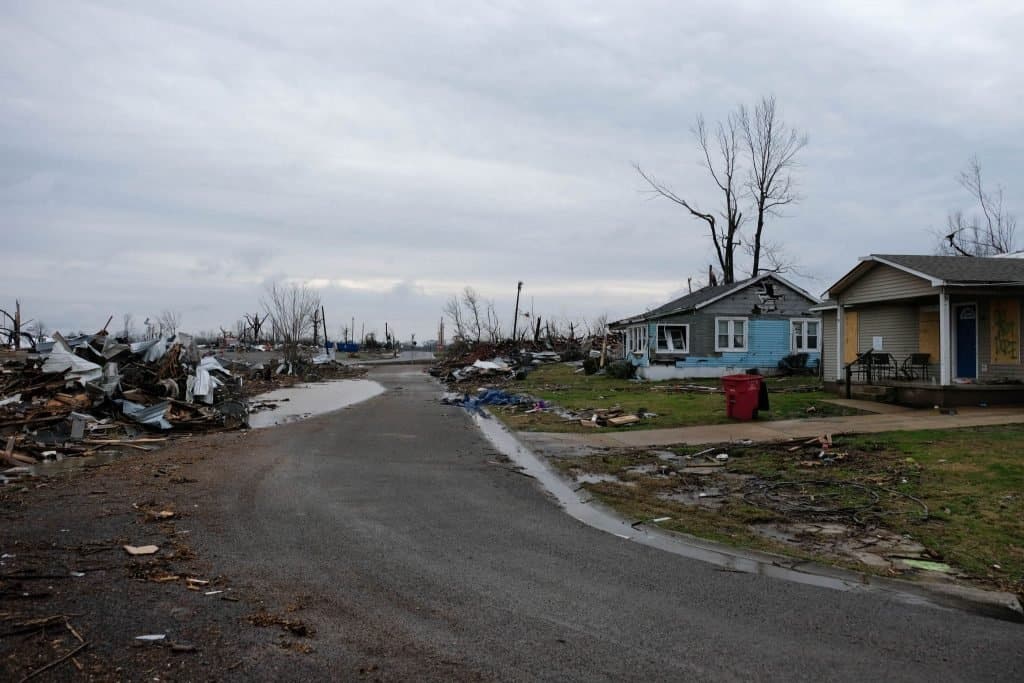
Turning their eyes to Penny’s workplace, they saw three trees uprooted. A neighbor’s front porch had blown into the office’s back yard. A window was broken. A chunk of white siding was missing. The roof was damaged.
But thankfully, all the needed repairs would be minor.
Then the couple noticed something else: The storm had taken down the privacy fence, giving Penny and Rob a clear view of the devastated neighborhood.
They could not drive into the neighborhood. Those who had tried ended up with nails in their tires.
So Rob trekked down the street on foot, snapping dozens of photos as he tried to capture what he was seeing.
But no single frame could tell the story. The scene of destruction was too vast.
“It’s really like an atomic bomb had gone off there,” Rob said.
‘You start with your neighbor’
When the fence fell down, other barriers did, too.
Before the tornado, Penny and Rob were content to ignore the nearby residents and never delve into the reasons for their struggles.
Now, they saw the neighbors with fresh eyes.
Some of their homes were complete rubble. Other homes were severely damaged and needed to be condemned, but the residents insisted on living in them. Still other homes were skipped by the tornado but lost power and water.
Their hearts softened, Penny and Rob felt compassion for the stunned storm victims they encountered.
Penny said she interpreted the downed fence “as God’s directive to me to get out into that neighborhood.”
“Literally, the walls came down, and we started talking to these neighbors,” Rob said. “I was like, ‘What can I do for you guys?’ And pretty much the first thing they said was, ‘Pray for us.’ They didn’t know what to do.”
Penny and Rob were still in shock themselves.
“It’s really hard to get your mind around what you’re seeing … and which way is north, south, east or west when all your landmarks are gone,” Penny said.
The couple returned home and spent most of that Saturday watching news coverage of the storm’s aftermath.
But by Saturday night, Penny started thinking about what she might do to help.
Given the disaster’s enormity, she grappled with where to start.
Then it hit her, she said: “You start with your neighbor. You look to the closest person to you, and you help that person.”
Not far from Penny’s business, the National Guard was blocking streets and preventing motorists from entering.
She and Rob realized that her corner parking lot — still accessible to the public — could be a perfect place to open a disaster relief center.
Soon, the couple and their daughter, Emily Smith, 30, a former long-haul truck driver now studying supply chain management, set up a coffee station and tables with bottled water, chips and crackers.
Other people started dropping off groceries and supplies, so much so that Penny’s friend Kelly Walden likened it to Jesus feeding 5,000 men, plus women and children, with five loaves of bread and two fish.
“I told Penny this is the loaves and fishes,” Walden, a fellow Reidland church member, said of how the effort grew. “Jesus takes what is offered, and he makes it stretch.”
‘We feed them like family’
As the grassroots operation expanded, Penny and Rob began cooking hot meals, starting with a breakfast of pancakes, scrambled eggs, bacon and sausage.
Graceland Portable Buildings, a client of Penny’s, loaned the couple a 44-by-14-foot “horse barn” to store donations.
A friend of a friend donated a camper to park at Penny’s place and serve as temporary housing for a tornado victim’s family.
Reidland church members and people from various churches in Mayfield started volunteering to help.
Two Mayfield congregations — the Northside Church of Christ and the Seven Oaks Church of Christ — shared items from their disaster relief operations.
On a recent Sunday, Rob got up early at his home in South Fulton and made two pots of chili.
After morning worship, he brought the chili — along with bags full of cheddar sausages and hot dog buns — to serve at Penny’s parking lot.
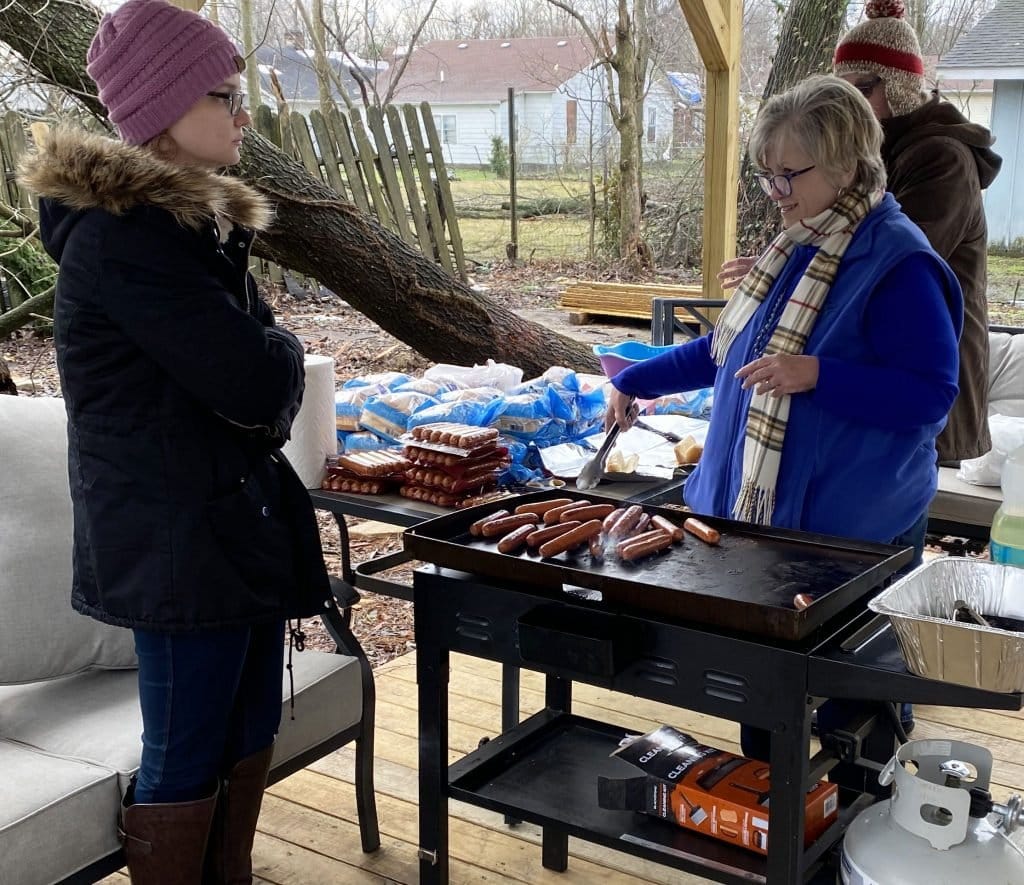
“When we fix food for these people, we’re only fixing them top-quality food,” Rob said. “We’re not those people out there giving you that cheap peanut butter and jelly sandwich.”
As Emily put it, “We feed them like family around here.”
Ella Jones, a Reidland member who lives in Mayfield, came to help feed residents.
“It’s exactly what God would have us to do. It’s what Jesus would do,” Jones said. “That’s why we’re here — to serve others. And that’s what I’m trying to do.”
‘They are wonderful people’
On a chilly, windy afternoon, Emelia Hernandez came from down the street to pick out a few clothes and enjoy a meal.
Hernandez lives in a rental house just down the street from Penny’s business. A blue tarp hung over the leaking roof, but the full extent of the damage was unclear.
“I was standing on the porch, and the lights went out, and you heard a big boom — I guess maybe that was the water tower that fell down,” she said of her tornado experience.
“And I said a bad word,” she added. “I was like, ‘Here we go.’ And we ran in the closet.”
She voiced appreciation for Penny and Rob and the other volunteers.
“They’ve been great,” Hernandez said. “They fixed us our first hot meal that we had.”
After Sunday lunch, Emily walked down the street with Hernandez and popped the hood to the pregnant woman’s car, which wouldn’t start after a snowstorm that followed the tornado.
Another neighbor, Ethaniel W. Faughn, known as “Pops,” ate a hot dog as his dog, Koko, played in Penny’s parking lot.
“Oh, Lord,” Faughn, 57, said of his tornado experience. “I was standing in the living room, and the whole roof came off … and gave me a shower.
“It wasn’t my time,” he added. “Everybody got to go.”
Like Hernandez, he praised the center’s volunteers.
“They are wonderful people,” he said. “Couldn’t be more better.”
‘This is where Jesus would have been’
Weeks after the tornado, Penny’s business remains on hold.
“I can’t keep doing that,” she said of neglecting her paying gig.
But for now, she’s focused on serving her neighbors. God, she believes, is working through her and helping change her.
“I think he’s giving us lots of opportunities to grow and to learn about being compassionate and understanding his great love for everybody,” Penny said. “Not just who we think are the people that he should show compassion to.”
Penny has been a Christian all her life, but she went through a period of struggle with God, said Terrell Lee, the Reidland church’s senior minister.
Her work with the disaster relief center is an outgrowth of her “new and exciting faith,” Lee said.
“She and her husband, Rob, are both taking what they’re doing here very, very seriously,” the minister said. “For Penny, this is God knocking on the door, and it’s a matter of obedience to her. It’s a matter of being faithful to her community.”
To Rob, the symbolism of the fence falling down can’t be overstated.
Now, the neighbors are real people with real stories — often complicated ones involving disabilities and mental health issues.
“I didn’t have any hatred for them or anything like that,” he said of his past mindset. “But I do believe that once the tornado happened, and I actually started talking to these people, I realized they’re still people.
“This is where Jesus would have been in this situation.”
This piece originally appeared at The Christian Chronicle.
 Bobby Ross Jr. is a columnist for Religion Unplugged and editor-in-chief of The Christian Chronicle. A former religion writer for The Associated Press and The Oklahoman, Ross has reported from all 50 states and 15 nations. He has covered religion since 1999.
Bobby Ross Jr. is a columnist for Religion Unplugged and editor-in-chief of The Christian Chronicle. A former religion writer for The Associated Press and The Oklahoman, Ross has reported from all 50 states and 15 nations. He has covered religion since 1999.




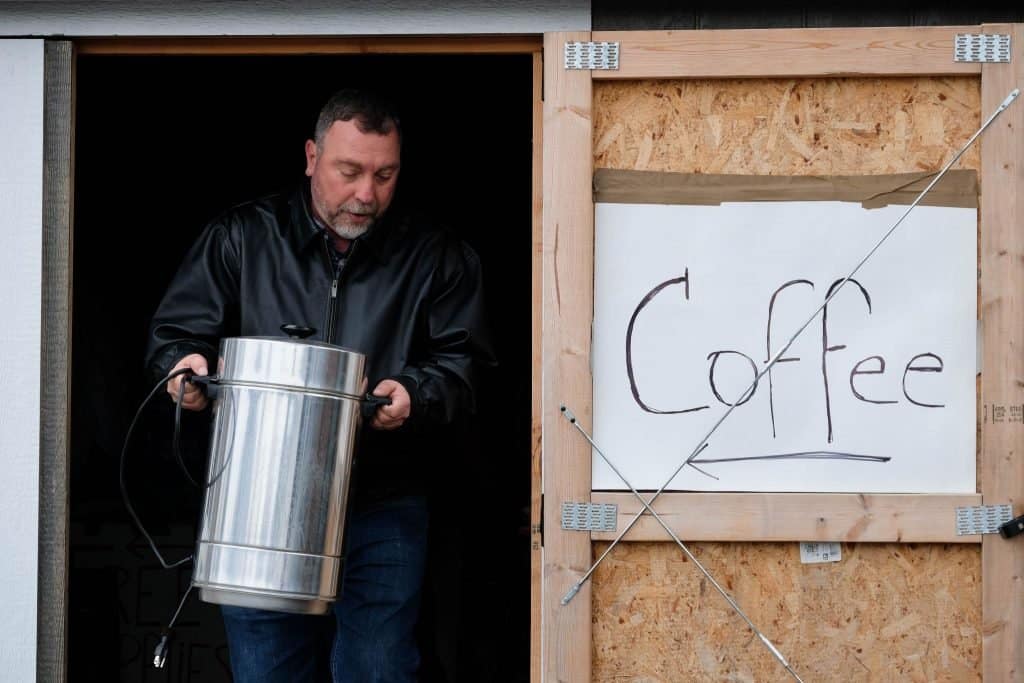
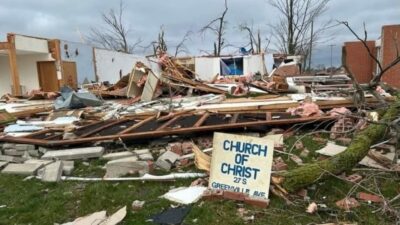
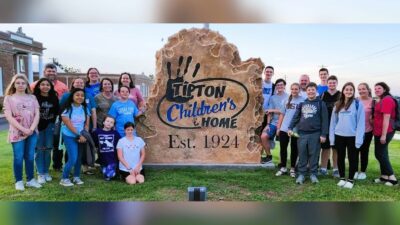
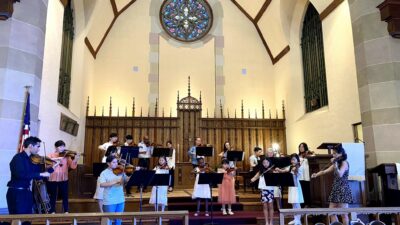

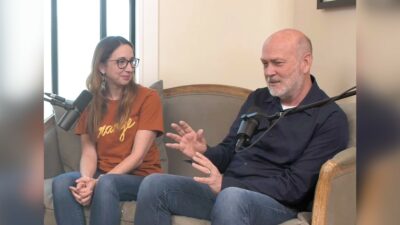
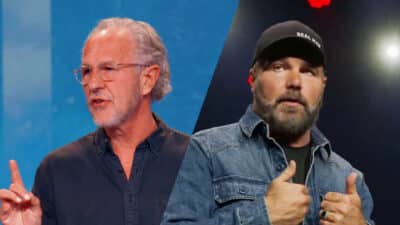
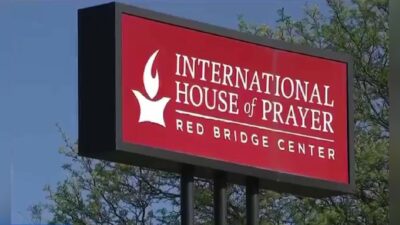








3 Responses
……”Then it hit her, she said: “You start with your neighbor. You look to the closest person to you, and you help that person.”
This is a challenging example for all who claim the Christian faith. In many cases the “fence” that needs to come down is race, politics, ethnicity, opinion, theology, practice, history…you name it, we all have our own metaphorical “fences”. (Not much has changed, has it, since the time of Jesus’ ministry?) We need hear no other sermon this week (and next week, and the week after that) than this observation…..and then stepping over the debris of whatever fence we are living behind. I too have some “fence demo” to do. Thank you Smiths for stepping up. Upon reading this account, I have become uncomfortable upon considering what I’m avoiding doing, and more importantly why I’m avoiding it. (Yes, Mr. and Mrs. Smith, thank you for that too!!)
Thank you for sharing this heart-warming, humbling, and enlightening story. It prompts me to do some soul-searching regarding my interactions with my neighbors (whoever and wherever they may be).
Please, Roy’s Report. More of this.